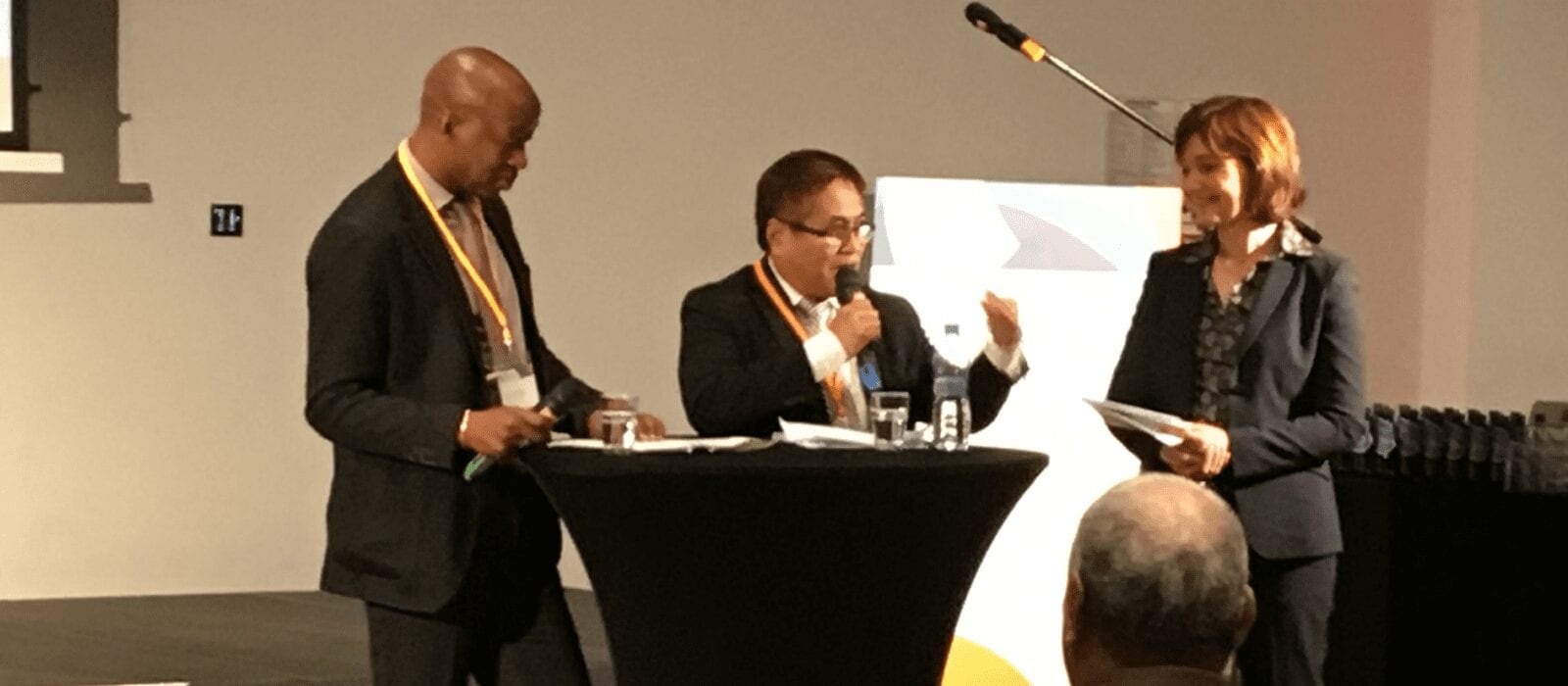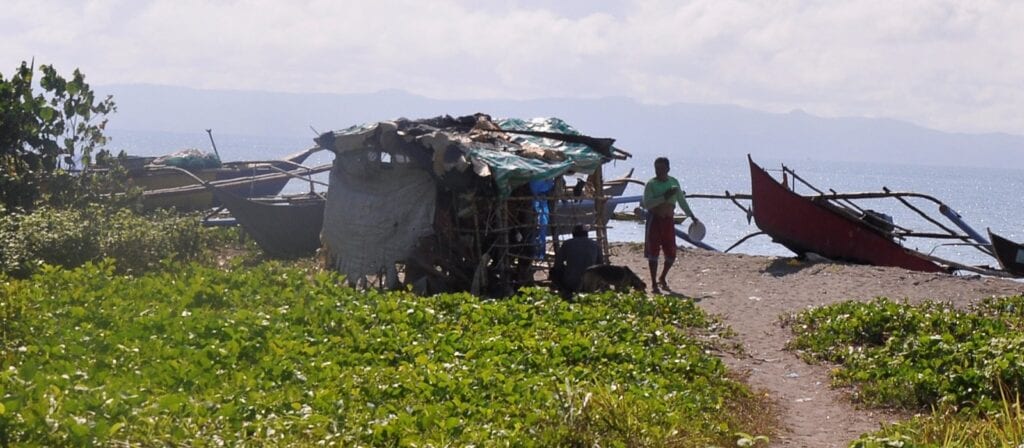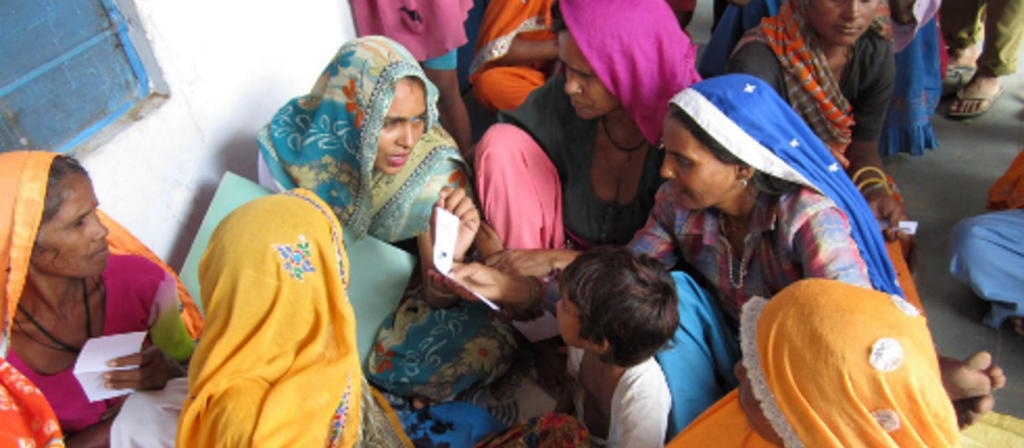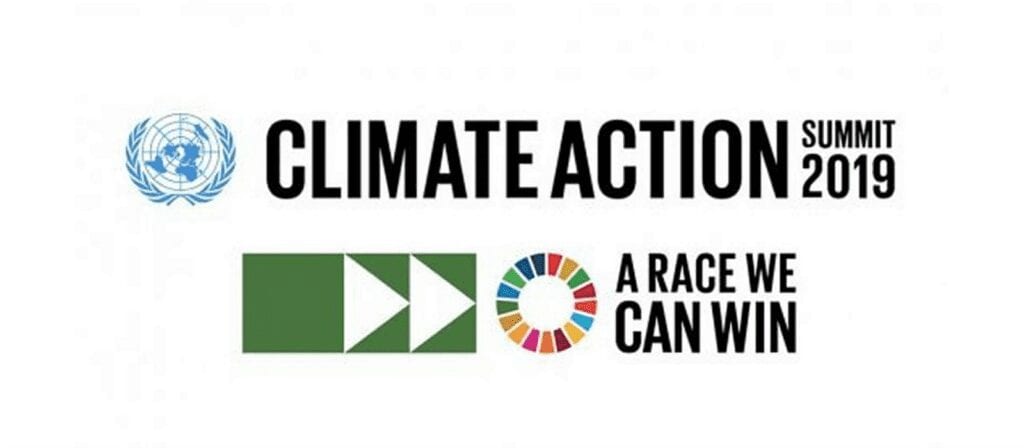Dr Jaime Aristotle Alip (pictured, centre), Founder of the ICMIF 5-5-5 Mutual Microinsurance Strategy and a fomer Chair of the ICMIF Development Committee, has today (10 December 2018) joined the opening session at the second InsuResilience Global Partnership Forum taking place in Katowice (Poland).
The framing session, entitled Effective risk financing and insurance solutions for the poor and vulnerable took place from 9:05-9:45 local time and was hosted by Dr Astrid Zwick of the InsuResilience Secretariat.
Dr Alip discussed his experience in extending microinsurance to poor communities in the Philippines to protect them against natural disasters, as well as discussing the potential impact of ICMIF’s 5-5-5 Mutual Microinsurance Strategy, during a moderated interview.
Papa Zoumana Diarra, Chief of Operational Planning, Africa Risk Capacity (ARC) also participated in the same panel discussion.
The role of insurance in mitigating the effects of climate-related disasters has recently taken a prominant role in international discussions, particularly the G20 held in Hamburg (Germany) in 2017. At the COP23 which took place in Bonn (Germany) in November 2017, the InsuResilience Global Partnership was launched to strengthen the resilience of developing countries and to protect the lives and livelihoods of poor and vulnerable people from the impacts of disasters. One year later, the Partnership Forum convened for the second time to take stock of how far the Global Partnership has come in its first year and to discuss how to shape the way forward.
The Forum took place during the COP24 summit taking place from 2-14 December 2018 also in Katowice (COP24 is the informal name for the 24th Conference of the Parties to the United Nations Framework Convention on Climate Change).
Dr Jaime Aristotle Alip is the Founder and Chairman of the Philippine-based Center for Agriculture and Rural Development Mutually Reinforcing Institutions (CARD MRI). Established in 1986, CARD MRI was started to empower poor women in the countryside and to help alleviate poverty in the Philippines. Its microinsurance arm, CARD Mutual Benefit Association (CARD MBA), insures more than 18 million individuals. In March 2011, Dr Alip was appointed Presidential Adviser for Economic Empowerment of the Rural Poor for the Philippines.
About the ICMIF 5-5-5 Mutual Microinsurance Strategy
Launched in June 2016, the ICMIF 5-5-5 Mutual Microinsurance Strategy aims to reach 5 million previously uninsured households with mutual microinsurance protection, in five different countries (Colombia, India, Kenya, the Philippines and Sri Lanka). The 5-5-5 is focused on reaching communities on a daily income of USD 2-10, who are most vulnerable to the impacts of natural disasters and climate change. Country intervention programmes for the 5-5-5 have already launched in India, Kenya and the Philippines. The 5-5-5 is overseen by The ICMIF Foundation, a registered charity in England and Wales which was formed by ICMIF in 2015.
About the 2nd InsuResilience Global Partnership Forum 2018
The Partnership Forum is one of the bodies of the InsuResilience Global Partnership. Its annual meeting, the Global Partnership Forum, is the largest in-person gathering of members from across the globe. The full-day event brings together all members and partners of the InsuResilience Global Partnership – from governments to representatives of international organizations, civil society, the private sector and academia. It serves as a platform to exchange experience and knowledge, and raise awareness about risk finance and insurance by engaging all stakeholders of the Partnership in an inclusive way. The first Partnership Forum took place in November 2017 during COP23 in Bonn.
The 2nd Partnership Forum in December 2018 will focus on exploring successful ways to promote climate and disaster risk finance and insurance solutions and making them more effective in support of a global resilience agenda. In particular, it will aim to identify lessons learned from country cases on how these solutions can be most effective in strengthening the resilience of the poor and vulnerable against climate risks. What are success stories and learnings from partner countries, and which features of existing projects can serve as “blueprints” for other schemes? What are the learnings from private sector and civil society? What are their expectations and ways forward for the Partnership?






